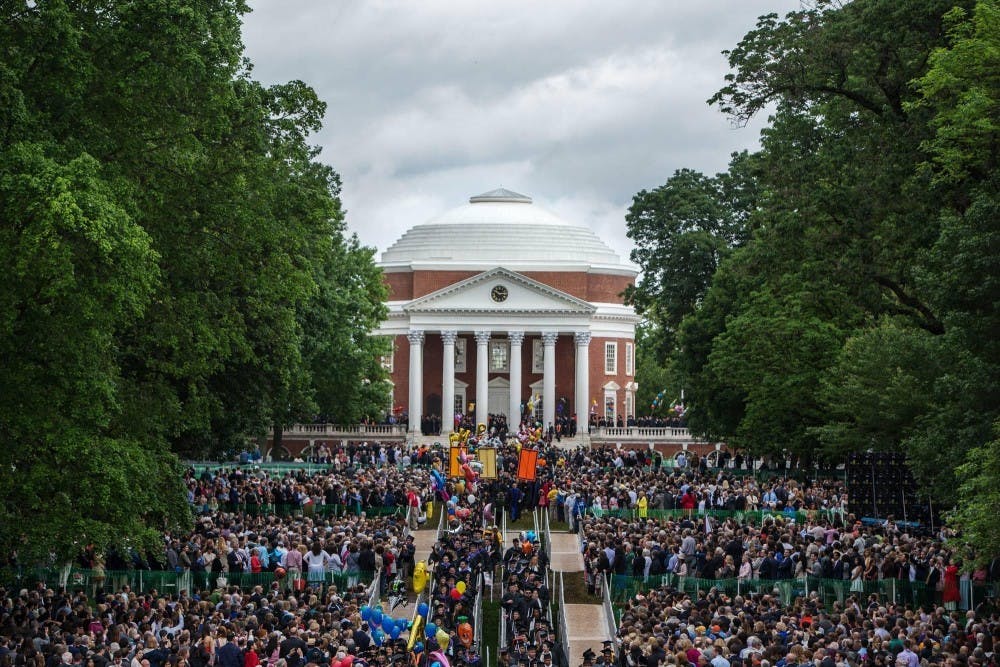From Steve Jobs’ 2005 address at Stanford University, to Stephen Colbert’s 2011 speech at Northwestern University, speakers at college graduations send messages of motivation and accomplishment. At the University, graduation speakers have shared similar messages, with speakers such as William Rehnquist, John Grisham and Katie Couric taking the podium to implore students of their mission beyond the University — their responsibility to society and also their potential for success. During Final Exercises this year, University President Teresa Sullivan will give the commencement address. While these speeches often give students a sense of pride or determination, they fail to give students one important thing — a sense of community. In addition to offering valedictory and commencement speakers, the University should institute a student speaker at graduation to create continuity between the class itself and the speakers.
The speakers at this year’s Final Exercises each bring a distinct message to the podium. Chris Long, an alumnus of the University and the football team, will speak during Valedictory Exercises on Friday — a ceremony conducted by the graduating class where the class gift and awards are presented. Long’s speech during this ceremony will hopefully capture a shared sense of giving. As a Philadelphia Eagles defensive end, Long has used his success to further causes such as education and access to clean water. Graduating students will have the chance to share in this mission as they present the class gift to the University.
Sullivan’s commencement address Saturday falls in line with a University tradition for outgoing presidents to give the address. As her last official address to students before stepping down, Sullivan’s speech will symbolize more than just the Class of 2018 — it will likely capture her entire time at the University.
While both Long and Sullivan bring to Final Exercises a sense of inspiration, their speeches and backgrounds do not align perfectly with the Class of 2018. For a group that has been through several momentous events during their time at the University, the class deserves a speaker who identifies with the difficulties and memories of being a student during those four years. In the future, students will have similar experiences and should have the same right to be represented on stage by one of their peers. By giving a student from each graduating class a chance to speak, the University would better connect with its students during the ceremony and afterwards, as students move into the next phase of their lives.
The logistics of choosing one student to speak from a class of about 4,000 may provide some hindrance to the process, but through a nomination process the class can be well represented on stage. First, students should be able to fill out a form to submit names of potential speakers. The form should also provide room for the student to expand on why their choice deserves to speak at graduation. Once the form closes, the Fourth Year Trustees Graduation Committee — the body responsible for choosing the valedictory speaker — should compile a list of the top choices, which would then be sent out to students for a vote. The democratic aspect of this process is vital to its success because it gives the entire class a voice in a process otherwise limited to a select few.
While no one student could represent an entire class’ beliefs and perspectives, the prospect of having a student speaker at graduation brings a greater sense of representation to the graduating class. The experiences students shared during their four years at the University are some that they will remember forever, and those communal memories should be acknowledged at graduation by someone who shares in them. Through a democratic process, choosing a speaker will provide students with the means to become more involved in Final Exercises preparations and also ensure that whoever is chosen represents the student body.
The Cavalier Daily Editorial Board is composed of the executive editor, the editor in chief and three at-large members of the paper. The board can be reached at eb@cavalierdaily.com.






